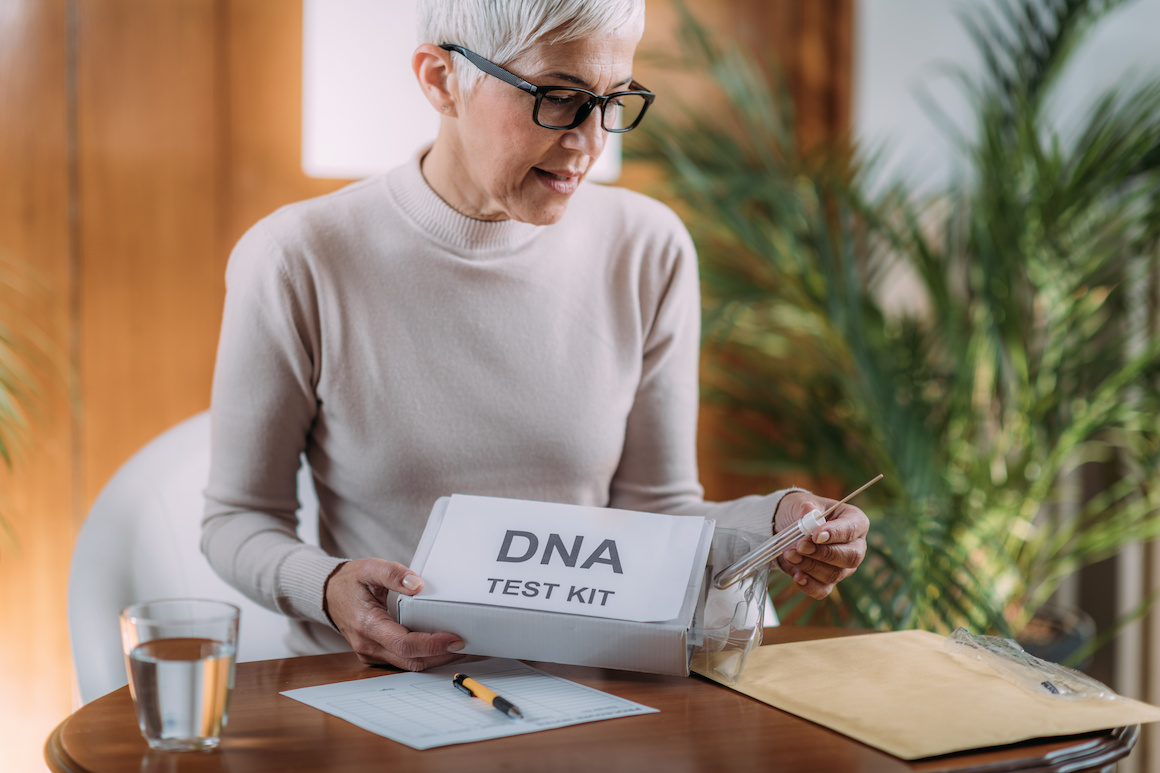
Tis the season for gift-giving; some folks may find an at-home genetic testalso known as direct-to-consumer testingunder the tree.But is it a good idea?This time of year, many companies offer holiday savings on their home kits just for this purpose.The global market for direct-to-consumer genetics testing was $1.98 billion U.S.
dollars in 2023 and growing steadily.Tests offer a range of information.You can find out ancestry, whether you have athletic ability, your biological age, whether you have hundreds of disease-causing genetic variants or not, and much more.Costs range, but for less than $80 one test offers more than 150 personalized reports, a look at your family health history tree, your chances of getting type 2 diabetes and whether your muscle composition is close to that of an elite athlete.How it worksThe process is simple and quick: You collect a little spit or swab your cheek and mail the specimen back to the company.
Once it arrives, your DNA is extracted from the sample and tested for genes that may be linked with ancestry or health risks.You get information about your origins, which health problems you may be at risk for, and other details.How good are they?Proceed cautiously, genetic experts warn.Check recent news stories about any company you are considering you want to stay on top of issues like data breaches or possible company closures.No test will give you a complete answer, and none can tell you that you are definitely getting a disease (or not), they say.
The tests look at a limited number of genetic variants, and disease risk is based on multiple genetic variants.These tests are not going to be able to completely answer [genetic] questions, says Colleen Campbell, PhD, MS, a licensed genetic counselor and clinical associate professor at the University of Iowa, Iowa City, who is also president of the National Society of Genetic Counselors.Home kits only scratch the surface, she says.Test results are often wrong, she says.
In this study, 40% of the variants were false positives.The results are also confusing to people, she says.You really need a healthcare provider or counselor to explain these results and put them in the context of your entire medical history, Campbell says.Even given the caveats, of course some will get the testsor give them.
If so, its important to check out the company, agree Campbell and Beth Sullivan, PhD, associate dean for research at Duke University, Durham, NC, and program committee chair for the American Society of Human Genetics.Sullivan suggests:Find out exactly what information youll getancestry and health risk assessment, for instance? For which diseases?How accurate does the company claim to be? Be wary, the Federal Trade Commission warns, of those claiming to be more accurate than other companies, as comparisons are difficult since results depend on the number and types of DNA samples matched with yours.Ask about privacy.What will they do with the information you give themwill they share it, and where do they store it? Companies say they store information securely and de-identify users information, but know that they are not covered under The Federal Trade Commission.The FTC has taken action against more than one company, with at least one company called out for storing genetic data in a cloud storage bucket the public could access.Once you get the results, Campbell says, take these results to a doctor or genetic counselor.
Dont make medical management decisions on your own with this.To find a genetic counselor, go to Find A Genetic Counselor.Insurance coverage varies, Campbell and Sullivan find.Then What?Once results are inhow or if to share results with family and friends? Its important in some situations; here are suggestions on how to share a genetic risk of cancers, for instance.And the American Psychological Association warns that testing may reveal family secretssome best left unrevealed.And be aware, these experts say, of an emerging trendpopulation genomics, programs that conduct genetic testing and overlay it with your medical records to personalize medicine, such as the National Institutes of Healths All of Us, OneDukeGen, and the just-launched Catalyst in Alabama.Your TurnHave you taken a home genetics test? How was it? Let us know in the comments!Kathleen Dohenyis a Los Angeles-based independent journalist, specializing in health, behavior, fitness and lifestyle stories.
Besides writing for Senior Planet, she reports for WebMD, Medscape, MedCentral and other sites.She is a mom, mother-in-law and proud and happy Mimi who likes to hike, jog and shop.Photo of Kathy Doheny: Shaun NewtonThis article offered by Senior Planet and Older Adults Technology Services is for informational purposes only and is not intended to substitute for professional medical advice, diagnosis, or treatment.Always seek the advice of your physician or other qualified health provider with any questions you may have regarding any medical condition.If you think you may have a medical emergency call 911 immediately.
Publisher: Senior Planet ( Read More )

